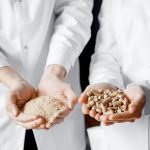
Oats have been growing in importance as a cereal grain crop for a couple of decades now. Once mainly used just for porridge, muesli, and biscuit products, oats are now a vital ingredient in many plant-based foods and drinks. Indeed, oat milk is an increasingly popular alternative to dairy milk. Oats’ importance as a food
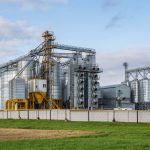
We are a nation that loves baked goods. Very few of us, only about 0.2% of the population, don’t buy bread. Indeed, about 30% of the goods in our shopping baskets have flour in. Between us, we get through 12 million loaves of bread, 5 million packets of biscuits, 4.5 million cakes, and 2 million

Over the past several decades, pets, particularly cats and dogs, have increasingly been treated as family members. The pet food market reflects this long standing trend. More people are willing to pay more for better quality pet food, but now some pet owners are also keen to buy products that better reflect their values. And
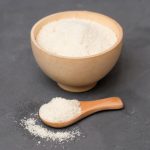
As food production processes become increasingly industrialised, requirements for flour become ever more precise. Quality control is crucial to delivering flours that meet the demands of food producers. From when grains arrive at the mill until customers use them for baking bread, you need to be carrying out checks. Flour has various characteristics which need
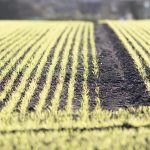
You’ve heard of organic farming, permaculture, maybe even biodynamic farming. But regenerative agriculture (aka regen ag) may be a new one to you. This new perspective on farming aims to revitalise the soil and the farm environment whilst also increasing food production and quality, and farmers’ incomes. The problem with soil Intensive farming practices deplete

Any process engineering project requires investment, especially when it comes to bespoke process solutions. These can cost significant amounts of money. So there is all the more reason to invest first in an accurate feasibility study. The point of such studies is to determine whether it is worth going ahead with the project. It doesn’t matter
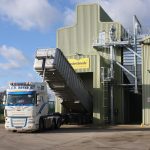
Humans have been eating and using grains for thousands of years, more specifically over 75,000. Since then, we’ve got more advanced and been harvesting them for at least 11,000 years. The most common are wheat, rice, maize, barley, rye, oats, sorghum, millet, and buckwheat. Modern cereal processing is still based on the ancient methods of harvesting, storing
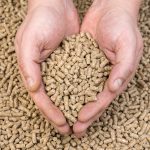
If there is one key driver for the 21st century business, it is sustainability. And nowhere more so than in animal agriculture. In 2013, the United Nations’ Trade and Environment Review cited agriculture as both a key driver and major victim of climate change. Animal agriculture is responsible for 14% of human-induced greenhouse gas emissions
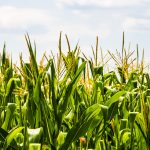
Corn, or maize as we call it in the UK, is big business all over the world. In 2021 the world produced 1206.96 million metric tons of its favourite grain, up from 822,712,527 metric tons in 2008. In Britain, we may have cornflakes for breakfast, a bag or two of popcorn at the cinema, and
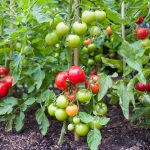
Did you know that food production is responsible for 76% of greenhouse gas emissions, and of those emissions 18% come from food processing? Or that UK supermarkets produce 114 billion tonnes of single-use plastic a year? No wonder eating locally and seasonally are becoming mainstream. To be local, foods must be grown within a few